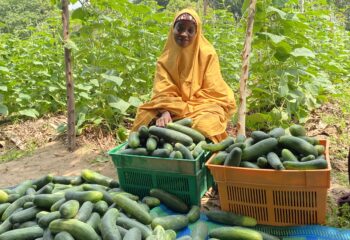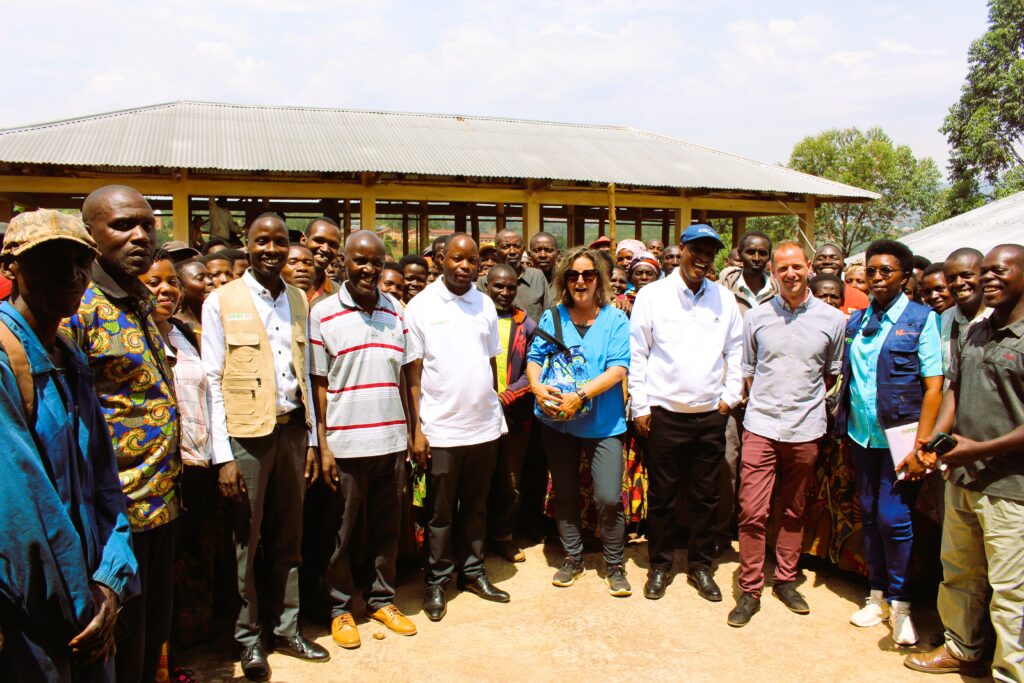
On September 24, leaders from IFDC and its field activity implementation partner Empowering Response Burundi (ERB) conducted a joint visit with Executives from the Embassy of the Netherlands to project implementation areas in Burundi.
This visit was part of the phase-out stage of the Soil Fertility Stewardship Project (PAGRIS), implemented by IFDC in collaboration with local non-governmental organizations, ERB, and Twitezimbere.
The delegation included Simone van Vugt, Senior Policy Advisor of Food and Nutrition Security at the Netherlands Ministry of Foreign Affairs, Eddy Niyonzima, Food Security Advisor from the Embassy of the Netherlands in Burundi, PAGRIS Chief of Party Micaël Beun, and ERB Director Lin Muvandimwe on a visit to Kiziguro Hill and Busimba Hill to learn about the activities PAGRIS has carried out in the field.
“As representatives of the administration, we are very pleased with the PAGRIS project’s interventions… and we ask that, if possible, these activities be extended to other hills in the Bugarama area.”
Gahungu Nesmas, Bugarama Deputy Zone Chief
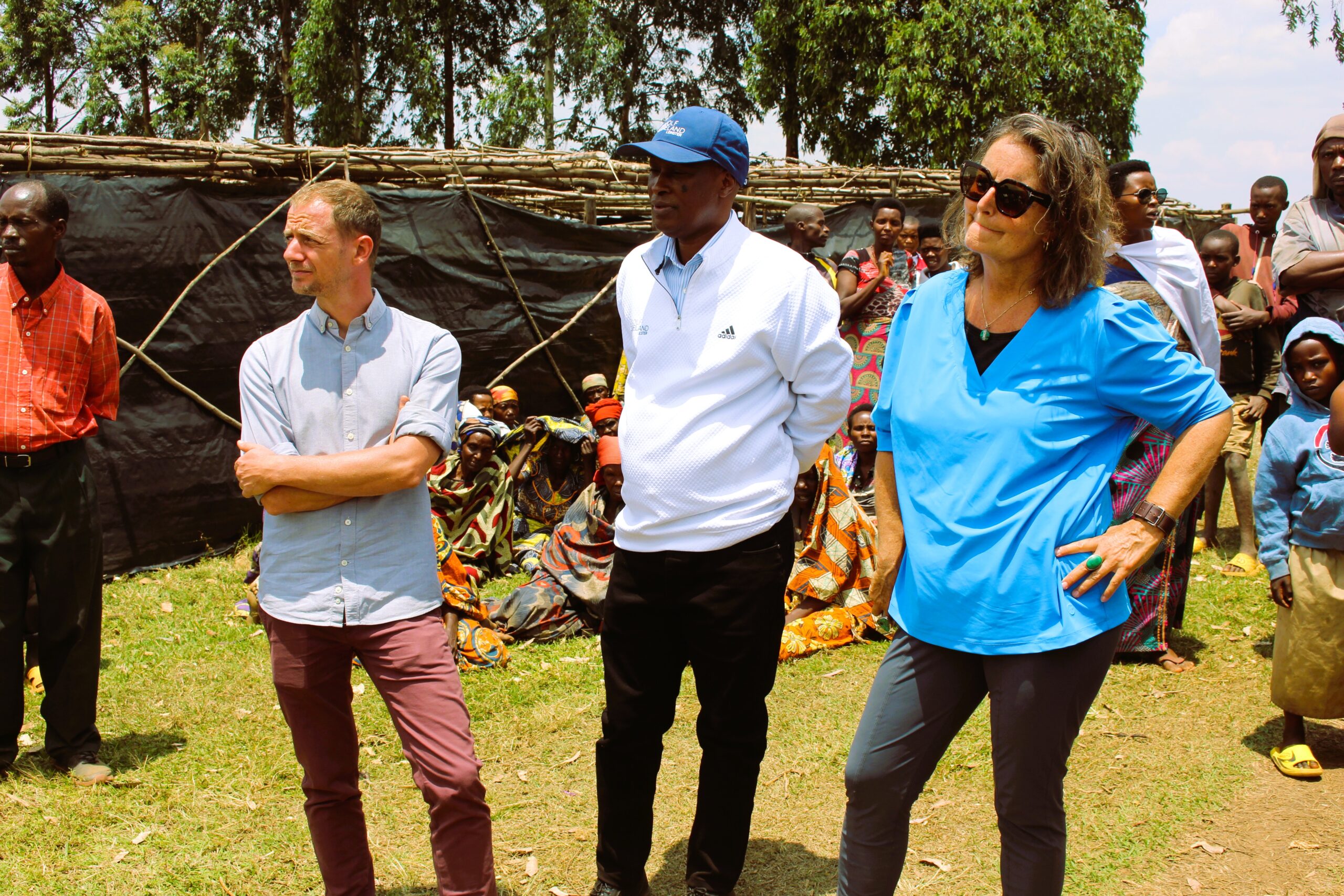
During the visit, the group heard testimonials from project participants, which focused on the impact of the training PAGRIS has facilitated on various topics, including:
- The Participatory Integrated Planning (PIP) approach
- Gender and transformational leadership
- Integrated soil fertility management (ISFM)
- Financial inclusion through village savings and loan associations (VSLAs)
- Good agricultural practices, such as planting nitrogen-fixing grasses on contour lines and the use of mineral fertilizers and organic manure.
One of these testimonials came from farmer Viola Kanyange from Busimba Hill. As she and her family developed an integrated household plan through the PIP approach taught by PAGRIS, they decided to obtain sufficient organic fertilizer for their farm by increasing their livestock.
She had already requested a loan of 70,000 Burundi francs (BIF) (approximately U.S. $23.36) from her VSLA, but for extra income toward this goal, Kanyange bought bananas and prepared banana beer to sell, earning 200,000 BIF (approximately U.S. $66.74).
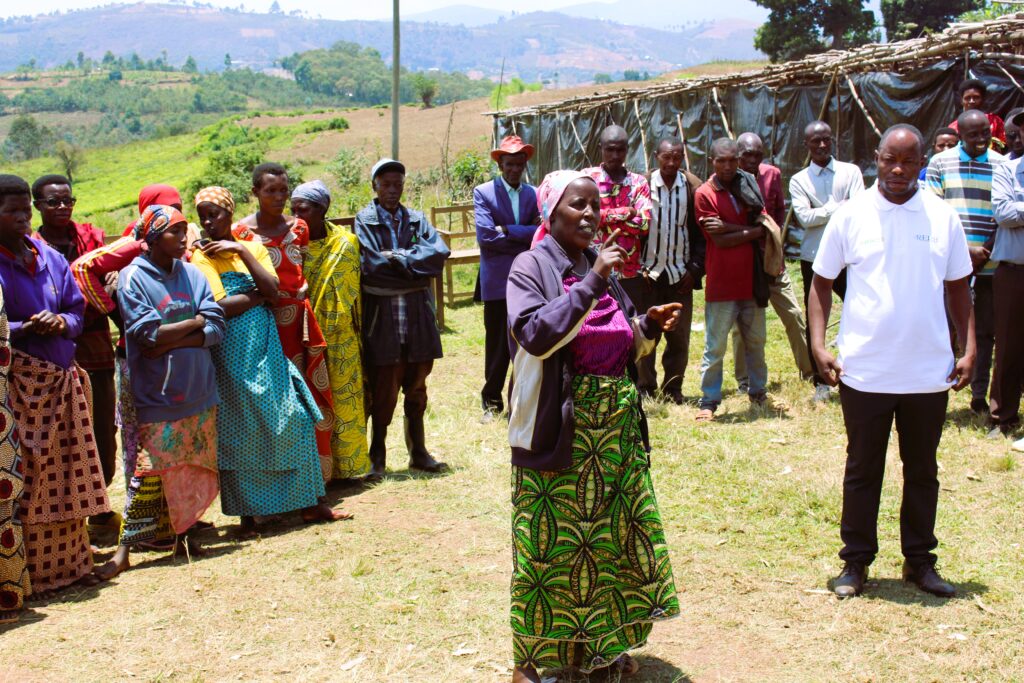
In turn, she bought a piglet for 150,000 BIF (approximately U.S. $50.05) to provide the organic fertilizer their farm needed. Kanyange reinvested the remaining money in more bananas to continue her banana beer trade and earned 300,000 BIF (approximately U.S. $100.11), which she used to repay her loan with its 10% interest.
Reflecting on her success, Kanyange shared, “I will continue trading banana beer and increase the number of piglets to have a more stable and sufficient organic fertilizer supply.”
Another example is farmer and VSLA member Dorthée Nduwimana, who remarked that after receiving training from PAGRIS, she went on to train her neighbors – eight people in total. Later, she followed up on their farms and saw that they were putting their training into practice. “The trained farmers have applied the knowledge they acquired very well, such as row planting and contour plowing, which I observed in their fields with my own eyes,” declared Nduwimana.
Bugarama Deputy Zone Chief Gahungu Nesmas thanked ERB, IFDC, and the Embassy of the Netherlands in Burundi for implementing PAGRIS within the hill community, noting the vital training on tracing contour lines, sowing in rows, combining organic fertilizer with mineral fertilizer, setting up agroforestry tree nurseries, and more.
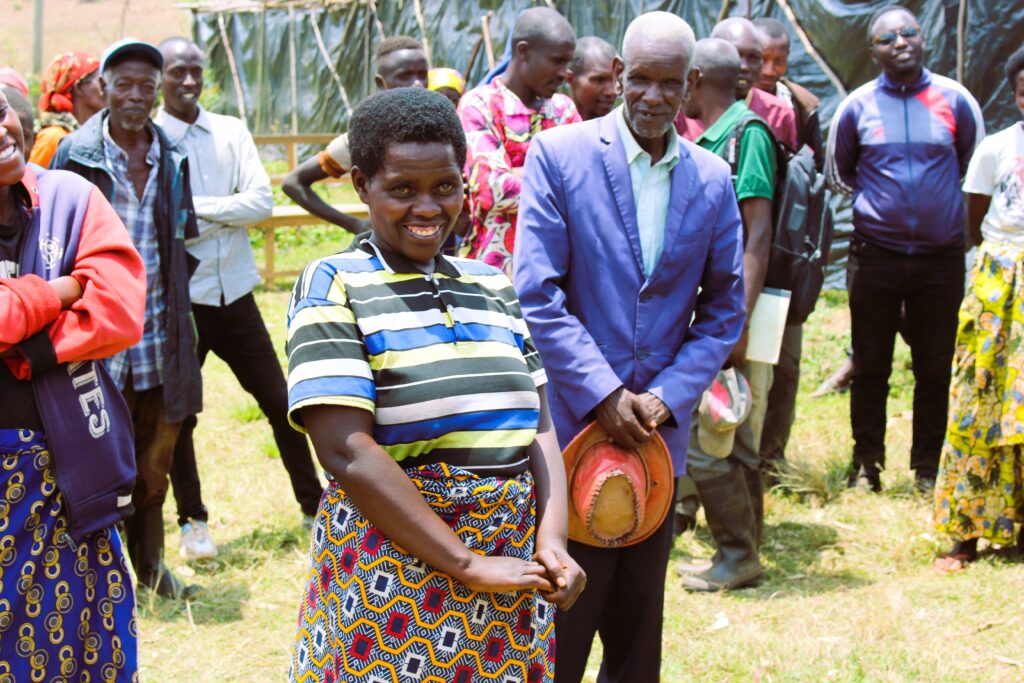
“We can see the vision for this Busimba Hill,” said Nesmas. “As representatives of the administration, we are very pleased with the PAGRIS project’s interventions… and we ask that, if possible, these activities be extended to other hills in the Bugarama area.” He also called on those who have benefited from PAGRIS training to transfer their knowledge to other hills so that the project’s interventions can benefit the entire population of the area.
Van Vugt also thanked IFDC and ERB for achieving impressive results in such a short time with PAGRIS, and she thanked the project participants for their testimonials, acknowledging the meaningful participation of their households and encouraging them to always involve their children in everything they do to ensure sustainability.
The visit ended on a hopeful note, highlighting how strategic support, community engagement, and knowledge sharing can empower households, strengthen livelihoods, and ensure lasting impact for future generations.
PAGRIS is funded by the Embassy of the Kingdom of the Netherlands in Burundi and implemented by IFDC, together with Wageningen Environmental Research and national partner Twitezimbere. PAGRIS is set to continue its activities in improving Burundian soil through December 2026.




